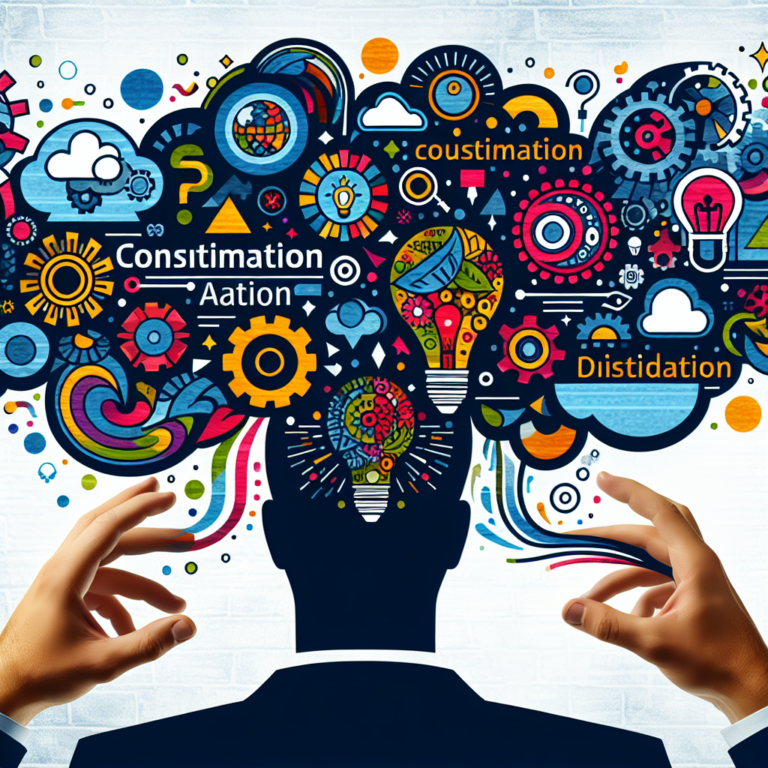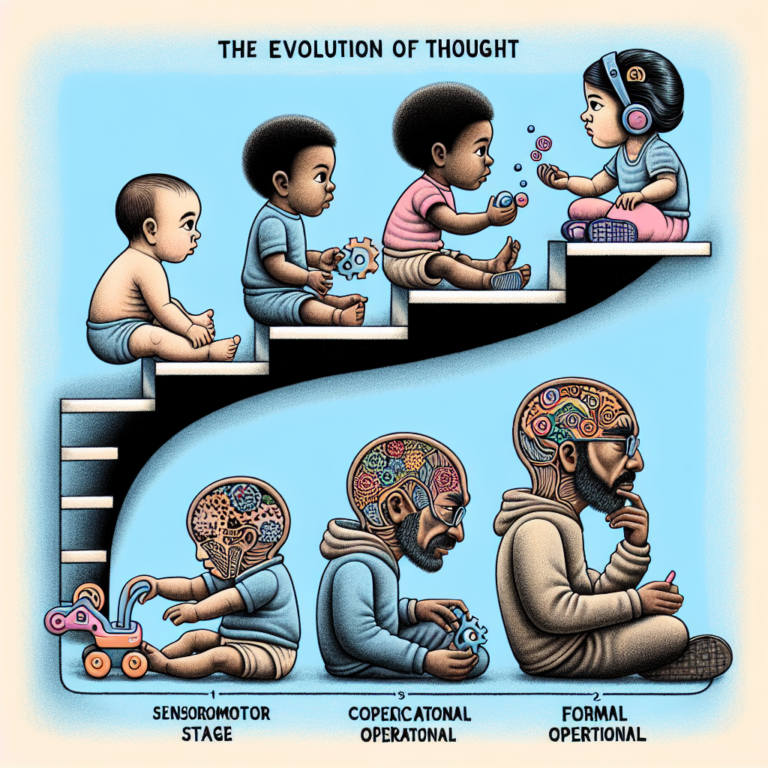
Introduction
Imagine a world where you can effortlessly juggle tasks, recall information with ease, and navigate daily challenges without mental fatigue. This isn’t just a dream; it’s the potential unlocked by understanding the relationship between working memory and mental health. Working Memory and Mental Health: The Overlooked Connection could hold the key to not just enhancing cognitive function, but also improving well-being in profound ways. In this article, we will peel back the layers of this vital connection, exploring how working memory impacts mental health and vice versa, revealing insights that can transform lives.
What is Working Memory?
Defining Working Memory
Working memory refers to the cognitive system that temporarily holds and processes information necessary for complex tasks such as reasoning, learning, and comprehension. Unlike short-term memory, which focuses on merely holding information, working memory actively manipulates information to accomplish tasks.
The Components of Working Memory
According to Baddeley’s model, working memory consists of three primary components:
- Central Executive: The orchestrator that directs attention and processes information.
- Phonological Loop: This retains verbal and auditory information.
- Visuospatial Sketchpad: This manages visual and spatial data.
Understanding these components enhances our comprehension of how working memory functions, particularly in relation to mental health.
Working Memory and Mental Health: The Overlooked Connection
The Bidirectional Relationship
The connection between working memory and mental health is intricate and bidirectional. Cognitive limitations formed by impaired working memory can lead to mental health issues, while mental health challenges can further diminish working memory capacity.
Case Study 1: Anxiety Disorders
A study by Eysenck (2012) illustrated that individuals with anxiety disorders often demonstrate deficits in working memory. For instance, when presented with a challenging task, those with heightened anxiety often found their working memory loads overwhelmed, leading to increased stress and diminished performance. This showcases how mental health conditions can directly impair cognitive functions.
Analysis
In this case, working memory serves as both a victim and a contributor, showing how effective cognitive strategies might mitigate anxiety symptoms, emphasizing the need for integrated therapeutic approaches.
Case Study 2: Depression and Executive Function
Research by Emmery et al. (2015) found that individuals experiencing depression frequently exhibit declines in working memory performance. Low motivation, rumination, and disrupted sleep exacerbate these issues, forming a vicious cycle. This illustrates a critical need for interventions that enhance working memory among those suffering from depression.
Analysis
These findings highlight the importance of cognitive training and therapeutic exercises focusing on working memory to alleviate depressive symptoms, emphasizing cognitive-behavioral techniques that target both areas.
The Importance of Working Memory in Daily Functioning
Cognition and Daily Life
Working memory is vital for effective day-to-day functioning. It helps us follow conversations, plan activities, and solve problems. When working memory is compromised, everyday tasks can feel overwhelming, impacting self-esteem and daily performance.
Table 1: The Impact of Working Memory Deficits on Daily Life
| Task | Impact of Deficit |
|---|---|
| Following Conversations | Difficulty understanding context |
| Planning | Trouble organizing tasks |
| Problem-Solving | Errors due to information overload |
Strategies to Enhance Working Memory
Cognitive Training Techniques
Cognitive training exercises can improve working memory capacity. Programs like dual n-back training and digit span tasks have shown promise in enhancing cognitive flexibility and memory retention.
Mindfulness and Mental Clarity
Mindfulness practices have also been linked to improved working memory function. Engaging in mindfulness activities reduces distractions, allowing for better focus and cognitive clarity.
Lifestyle Factors
Diet, sleep, and physical exercise profoundly influence working memory. Omega-3 fatty acids, adequate sleep, and regular physical activity all contribute to enhanced cognitive performance.
The Role of Therapy in Enhancing Working Memory
Cognitive Behavioral Therapy (CBT)
CBT has proven effective in treating cognitive deficits linked to mental health issues. By identifying and restructuring negative thought patterns, CBT can improve both mental health and working memory function.
Case Study 3: CBT in Practice
A 2018 study by Zaba et al. highlighted patients with generalized anxiety disorder undergoing CBT showed marked improvements in both their anxiety symptoms and working memory capacity after therapy.
Analysis
The improvements suggest that therapies designed to enhance cognitive function can directly impact mental health, underlining the reciprocal relationship in Working Memory and Mental Health: The Overlooked Connection.
Neurobiology Behind the Connection
Brain Structures Involved
Research indicates that regions of the prefrontal cortex play crucial roles in both working memory and emotional regulation. Damage to these areas can result in deficits across both domains, showcasing how intertwined these elements truly are.
Neurotransmitters in Action
Neurotransmitters such as dopamine and serotonin have been implicated in both working memory functioning and mood regulation. An imbalance in these chemicals can compound issues, affecting both memory and mental well-being.
The Importance of Community Support
Building Resilience through Social Connections
Having a strong social network mitigates mental health issues while simultaneously enhancing cognitive capacities such as working memory. Group therapy and community programs can be effective platforms for improving both domains.
Case Study 4: Social Support and Working Memory
Research by Cohen et al. (2017) found that participants with high social support exhibited better working memory performance compared to those with low support. This highlights the importance of community engagement in improving cognitive resilience.
Analysis
Leveraging community resources can help bridge gaps in working memory and mental health, illustrating that collaboration can significantly improve both areas.
The Future of Research
Expanding the Knowledge Base
Further research on Working Memory and Mental Health: The Overlooked Connection is crucial for developing targeted interventions. Scientists are exploring neuroimaging techniques to better understand the brain regions involved in this relationship, which may lead to groundbreaking therapies.
Innovative Interventions
There is potential for novel interventions that blend cognitive training with therapeutic practices. These could include technology-based solutions like apps focused on improving working memory while providing mental health support.
Conclusion
The connection between working memory and mental health is complex yet immensely significant. Understanding this relationship can empower individuals to enhance their cognitive capabilities while addressing mental health concerns. As we continue to explore Working Memory and Mental Health: The Overlooked Connection, we empower ourselves to take actionable steps toward better mental health and cognitive function.
Key Takeaways
- Working memory is essential not just for cognitive tasks but also deeply intertwined with mental health.
- Therapeutic modalities like CBT and mindfulness can enhance both working memory and mental well-being.
- Community support plays a pivotal role in resilience and cognitive enhancement.
- Continued research is essential to unravel deeper connections and develop effective interventions.
FAQs
1. How can I improve my working memory?
Engaging in cognitive training exercises, practicing mindfulness, and maintaining a healthy lifestyle can significantly enhance your working memory.
2. Can poor mental health affect memory?
Yes, mental health conditions, particularly anxiety and depression, often lead to declines in working memory capacity.
3. What role do diet and exercise play in working memory?
A balanced diet and regular physical activity positively influence brain health, enhancing working memory performance.
4. How does therapy help improve working memory?
Cognitive Behavioral Therapy helps restructure negative thought patterns while enhancing cognitive functions, including working memory.
5. Is social support beneficial for cognitive function?
Absolutely! Research shows that strong social networks provide emotional and cognitive support, enhancing both working memory and mental health outcomes.
By fostering an understanding of Working Memory and Mental Health: The Overlooked Connection, we pave the way for not only personal growth but also a healthier society. Let’s seize this insight to cultivate better lives, one memory at a time.














